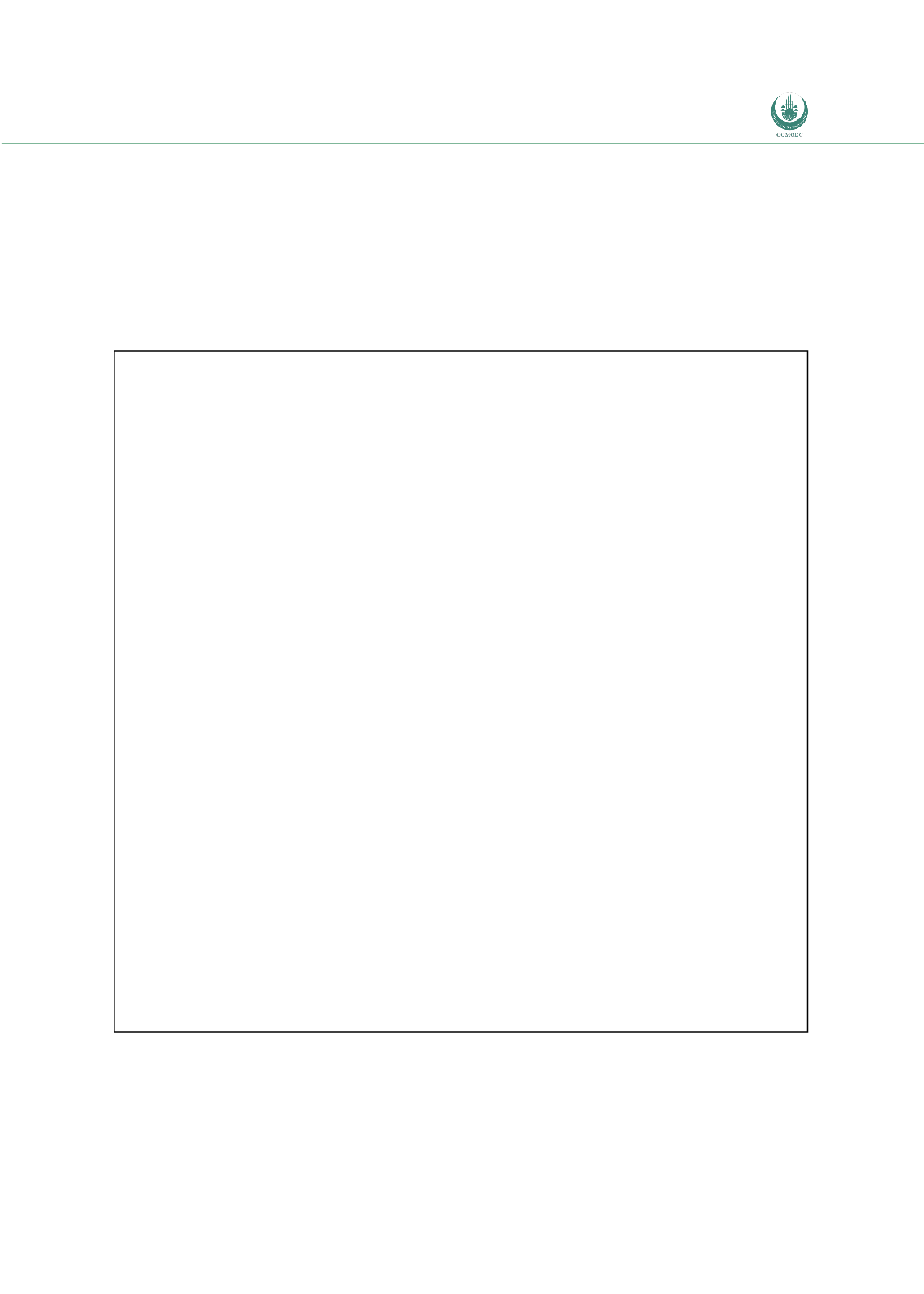

FACILITATING INTRA-OIC TRADE:
Improving the Efficiency of the Customs Procedures in the OIC Member States
55
client services, relations with other border protection agencies and private sector,
internal control and auditing shall be carried in a professional manner to meet the
international standards. These arrangements require mostly changing the management
skills. Cooperation with the international institutions such as WCO and World Bank and
experience sharing and technical cooperation with other customs administrations will be
beneficial in this process. For example WCO has provided important contribution to
customs reform in Ethiopia (See Box 4 below).
-Human Resources Management
Human Resources Management is also an important determinant in improving the
efficiency of Customs. Critical missions to be assumed by the Customs require these
Box 4: Customs Reform and Trade Facilitation In Ethiopia
The World Customs Organization (WCO) was approached by the Ethiopian Ministry of Revenue
(MoR) to review the development of the Ethiopian Customs Authority (ECuA) against international
standards to identify priorities and how the WCO could assist ECuA in meeting its reform goals. In
May 2005, a team from the WCO Secretariat visited Ethiopia to conduct a needs assessment mission
using the WCO Diagnostic Framework tool. The team visited Customs Headquarters, interviewed
senior managers and policy makers, met with operational officers, observed operations and met with
stakeholders from both the private and public sectors. This assessment mission was followed up by a
series of action with the purpose to support ECuA in planning to address the issues identified.
In July 2008, as part of the ongoing reform, there was a merger of three already existing bodies, the
Ministry of Revenue, Ethiopian Customs Authority (ECuA) and the Federal Inland Revenue
Authority. The merger resulted in the creation of the Ethiopian Revenue and Customs Agency
(ERCA). The Authority has the main responsibility of revenue collection on behalf of the Federal
Government of Ethiopia as well as to secure and facilitate legitimate trade. The Authority works
closely with the federal police, standardization authority, Ministry of Health and Immigration Service
and with other stakeholders.
The WCO provided support to ERCA in two phases, in the First Phase using the Diagnostic
Framework too1, which covers the following areas: Strategic Management, Resource Management
(Human, Financial and Physical), Legal Framework, Customs Systems and procedures, Information
and Communication Technology. The WCO undertook a comprehensive needs analysis in Ethiopia to
assess the overall development capacity of the administration as well as its compliance with
international standards.
Subsequently, in the Second Phase (Implementation phase) the WCO in collaboration with other
Development Agencies conducted a series of action that supported the development of Ethiopia’s
Customs Reform Programme. The implementation of the Customs Reform Programme was based on
a comprehensive Business Case.. Based on the priorities identified, the WCO provided targeted
capacity building assistance by conducting a series of Management Development Programme2
actions for Senior Management Team within ERCA. The events included sessions on international
standards and developments, managing reform, introducing facilitation and risk management.
Source: OECD and WTO 2011 “Customs Reform and Trade Facilitation in Ethiopia”

















